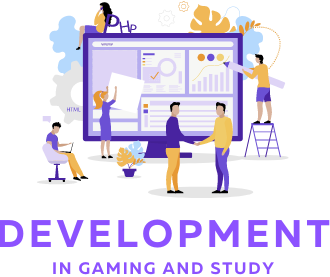Online gaming has evolved from a pastime to a global cultural phenomenon, reshaping entertainment and social interaction in profound ways. What started as simple, single-player experiences has developed into complex, multiplayer environments where players interact, compete, and collaborate with others from around the world. The rapid advancements in technology, including improved internet connectivity, faster processors, and more situs toto immersive graphics, have driven the growth of online gaming, making it an essential part of modern entertainment.
The beginning of online gaming can be traced back to the 1990s, when players first began connecting over dial-up internet to enjoy multiplayer experiences. Games like Doom and Warcraft allowed players to explore virtual worlds with friends and strangers, laying the foundation for what would become a global industry. These early games helped establish online gaming as a social activity, not just a solitary experience. As internet speeds increased and technology advanced, online multiplayer games became more sophisticated, with large-scale worlds and deeper player interactions.
One of the most significant developments in the world of online gaming has been the rise of competitive multiplayer games. Titles like League of Legends, Fortnite, and Counter-Strike have transformed the gaming experience, bringing millions of players together in real-time battles, challenges, and collaborations. These games have become more than just entertainment; they have turned into communities where players build relationships, share experiences, and even form esports teams. In many ways, these competitive games are no longer just about winning but also about the social connections and networks that emerge through play.
Mobile gaming has played a crucial role in the rise of online gaming. With the proliferation of smartphones, gaming has become more accessible to a wider audience. Games like Clash Royale, PUBG Mobile, and Candy Crush have made gaming available at people’s fingertips, allowing them to engage in quick, entertaining experiences during their daily routines. Mobile gaming has attracted a diverse demographic, from casual players to competitive gamers, offering everything from simple puzzles to complex strategy games. The mobile gaming sector has significantly broadened the scope of the gaming community and made gaming a daily activity for millions.
Cloud gaming represents another game-changing innovation that has altered the landscape of online gaming. Platforms like Google Stadia, Xbox Cloud Gaming, and NVIDIA GeForce Now have made it possible for players to stream high-quality games directly to their devices without needing expensive hardware. Cloud gaming eliminates barriers like console costs and system requirements, making gaming accessible to anyone with an internet connection. This shift toward cloud-based gaming also opens the door to new business models, such as game subscription services, where players pay a monthly fee for access to a library of games.
Esports, the competitive gaming scene, has experienced explosive growth in recent years. Games like Dota 2, Overwatch, and Valorant now host global tournaments, with millions of viewers tuning in to watch professional players compete for substantial prize money. Esports has grown from an underground hobby to a legitimate career path for many players, with sponsorships, streaming opportunities, and team organizations all part of the rapidly expanding industry. What was once considered a niche interest has now become a global spectacle, attracting viewers and players from every corner of the globe.
However, despite its many benefits, online gaming comes with its own set of challenges. Issues such as toxic behavior, cheating, and online harassment continue to affect many gaming communities. Developers and platform providers are continuously working to improve moderation tools, implement reporting systems, and create safer, more inclusive spaces for players. There is also growing concern about gaming addiction, especially as online gaming becomes more immersive and engaging. As the gaming community grows, there will need to be more focus on promoting healthy gaming habits and addressing mental health concerns.
Looking ahead, the future of online gaming is filled with exciting possibilities. Virtual reality (VR) and augmented reality (AR) are expected to revolutionize the gaming experience, creating fully immersive worlds where players can interact with their environment in ways previously unimaginable. As technology continues to advance, the lines between physical and virtual spaces will blur, offering gamers a deeper and more dynamic experience than ever before. The rise of AI-driven game design, improved multiplayer servers, and innovative storytelling techniques will also shape the future of online gaming, making it a continually evolving form of entertainment.
In conclusion, online gaming has emerged as a dominant force in entertainment and social interaction, with its reach extending beyond traditional gaming circles to impact global culture. The advent of competitive multiplayer games, mobile gaming, cloud gaming, and esports has redefined what gaming can be. As technology continues to evolve, online gaming will only become more immersive, engaging, and integrated into the fabric of modern life. Whether for entertainment, competition, or socialization, online gaming is here to stay, and its influence will continue to grow in the years to come.
